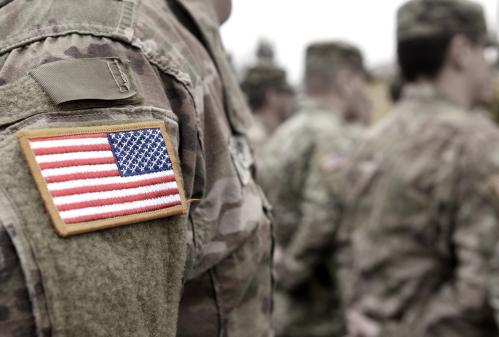Editor’s Note: In an interview on MSNBC’s Morning Joe, Michael O’Hanlon discusses whether or not America needs to rethink its Afghanistan strategy and the psychological toll the war has had on U.S. troops.
MSNBC: Is the burden of how we are running our country being distributed in the right way?
MICHAEL O’HANLON: To quote a four-star general who I’m friends with, “Never have we as a country asked so much, of so few, for so long.” And I know that Bael’s tragedy has brought this question to the forefront, but what I’ve been watching over the years is things that have to do with the basic well-being of the force, in terms of divorce rates, suicide rates, PTSD. I think we have to recognize that we have really pushed this force very, very hard. That’s something for all of us to wrestle with. I don’t think, however, that that necessitates radically altering our Afghanistan strategy for that reason primarily. The stress on the force, on balance, is a little less now than three, four or five years ago. There is a cumulative effect, obviously, and I don’t want to trivialize the strains, but if you look at some of these other indicators that I just mentioned, while they are still much higher than we would like, they have actually peaked and started to decline. So I don’t think that we should rush out of a war where we have a decent chance of some level of stability, primarily based on this argument. If there are other reasons too, then we obviously weigh this as well.
MSNBC: PTSD, you mentioned, in the Vietnam War was at about 17%. It’s up to 20% in this conflict. You’ve been in the region as recently as the last couple months and you say that things seem to be getting better, but what are the factors that have made this war, according to army statistics, have a greater psychological toll on our troops than Vietnam?
O’HANLON: First of all, let me clarify, I do think some parts of Afghanistan are getting better—I am not here as a big proponent of how things are going overall. I think it’s been tough, and I think what we’re trying to do is make the best of a very difficult situation that, frankly, has been more frustrating than I would have liked or predicted. I would have thought that we would have been doing a little bit better by now. However, we have seen big progress in the south, we’ve seen a stabilization of Kabul and the North and West, we still have big problems with the east, still have big problems with corruption, still have big problems with the Pakistanis—so very much a mixed bag—just to be clear of where I’m coming from on this. In terms of the overall terms of incidents of PTSD in this war versus Vietnam, I don’t know that statistics are completely comparable because the diagnostics are much better now, but we obviously have one big difference, which is the frequent, repeated deployments, which we are putting our forces through now. In Vietnam, we had a much less capable force, because it was a lot of people going in for one year and then getting out permanently, and that’s why we fought the war so much less effectively, in my view. Today’s military is much better prepared for the task at hand than the Vietnam military, but at a personal and individual level, the soldiers and Marines are asked to do a heck of a lot.
The Brookings Institution is committed to quality, independence, and impact.
We are supported by a diverse array of funders. In line with our values and policies, each Brookings publication represents the sole views of its author(s).



Commentary
Going Forward in Afghanistan
March 19, 2012